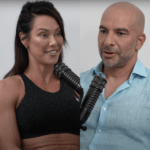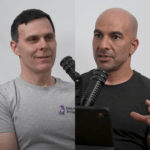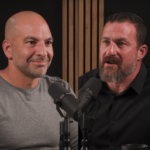
The MIND diet on trial: can diet choices impact cognitive health?
The results were lackluster, but a closer look leaves room for other explanations

Could an antihypertensive drug have independent benefits for longevity?
A recent animal study indicates that the antihypertensive drug rilmenidine has impressive effects on lifespan, but without further evidence, this story seems like another “fountain of youth” myth.

#272 ‒ Rapamycin: potential longevity benefits, surge in popularity, unanswered questions, and more | David Sabatini, M.D., Ph.D. and Matt Kaeberlein, Ph.D.
“[Rapamycin] is the most robust and reproducible drug that we know about today for impacting not only longevity, but to the extent that we can measure various metrics of healthspan in complex animals, rapamycin also seems to positively impact pretty much every aspect of health span that we measure.” —Matt Kaeberlein

To reduce appetite, skip late-night snacks
Two recent randomized trials found that biasing food intake toward the end of the day increases appetite and may reduce energy expenditure.

#235 ‒ Training principles for mass and strength, changing views on nutrition, creatine supplementation, and more | Layne Norton, Ph.D.
“Most 40 year olds, 50 year olds, they have pain anyway. So I’d rather be strong and have pain than be weak and have pain.” —Layne Norton

#228 ‒ Improving body composition, female-specific training principles, and overcoming an eating disorder | Holly Baxter, APD
“You will always lose muscle mass when you attempt a fat-loss phase, but the leaner you get, the greater the risk of that muscle loss because you no longer have that caloric cushioning to support that.” —Holly Baxter

#222 ‒ How nutrition impacts longevity | Matt Kaeberlein, Ph.D.
“It’s really important that we be willing to change our beliefs about nutrition and other aspects of health as more data comes in.” —Matt Kaeberlein



